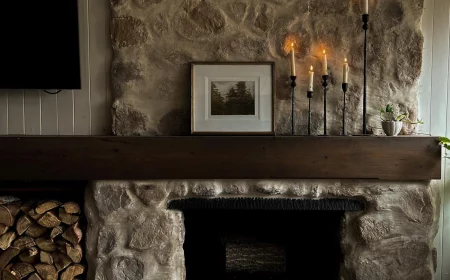The Real Deal on Renters Insurance: What It Actually Covers (and Why You Need It)
Let me tell you about a call I got at 3 a.m. once. It was a young couple, clients of mine, who lived in a downtown apartment. A fire that started in another unit had spread, and they barely got out with the clothes on their backs. Standing on the sidewalk, watching the smoke pour out of their windows, their first panicked question to me was, “What do we do? The landlord’s insurance covers this, right?”
In this article
- First Off, How Does Insurance Even Work?
- Decoding Your Policy: The Four Key Parts
- The Big ‘Gotchas’: What Renters Insurance DOESN’T Cover
- Nailing Your Coverage: How to Get It Right
- What Drives Your Price Up or Down?
- A Few Special Situations to Consider
- Getting Your Policy: The Final Steps
- Inspirational Gallery
And I had to give them the honest, hard truth. “Yes,” I said, “but his policy only covers the building. It does absolutely nothing for your life inside it.”
In that moment, the handful of dollars they spent each month on renters insurance went from a minor bill to the single best financial decision they’d ever made. That policy got them a hotel room to sleep in that night. It replaced their furniture, their laptops, their clothes, and everything in their kitchen. It literally gave them a foundation to stand on while they put their lives back together.

I’ve seen this same story play out a hundred times with burst pipes, break-ins, and freak accidents. The biggest myth out there is that your landlord’s policy protects you. It doesn’t. It protects the landlord. Your life, your belongings, and your financial future inside those four walls? That’s all on you.
So, let’s break this down in simple terms. My goal here is to show you what actually matters in a policy and help you sidestep the common mistakes I’ve seen trip people up time and time again.
First Off, How Does Insurance Even Work?
Before we get into the nitty-gritty, it helps to get the basic idea. Insurance is really just a giant safety net woven by a community. Think about it like this: Imagine 100 families all agree to put $20 into a community pot every year. That’s $2,000 in the pot. If a tree falls on one family’s roof and it costs $1,500 to fix, the money from the pot covers it. Everyone chipped in a small, manageable amount to save one member from a huge, unexpected bill.
Insurance companies are just doing this on a massive scale. The premium you pay is your contribution to the pot. The whole point is to get you back to where you were right before the incident happened—not to make you rich, just to make you whole again. And that’s why policies have very specific rules and limits.
Decoding Your Policy: The Four Key Parts
In the biz, a standard renters policy is called an HO-4. While the contracts might look a little different between companies, they all cover the same four basic areas. When you get a quote, you’ll be making choices about each of these.
1. Personal Property Coverage (Your Stuff)
This is the part everyone knows about. It’s what pays to replace your things: your couch, TV, clothes, laptop, you name it. It covers your belongings if they’re damaged or destroyed by a list of specific events, or “perils,” listed in the policy.
A standard policy usually covers things like:
- Fire and lightning
- Windstorms and hail
- Theft and vandalism
- Smoke damage
- Water damage from bursting pipes or A/C leaks
- Falling objects
- Weight of ice or snow
Quick tip: Did you know this coverage often follows your stuff outside your home? If your laptop gets stolen from your car or a coffee shop, your renters insurance can cover it. Most people have no idea!
2. Loss of Use (A Place to Stay)
This is the coverage that was a lifesaver for that couple I mentioned. If your apartment becomes unlivable because of a covered event (like that fire), this part of the policy pays for your additional living expenses. It covers the cost of a hotel or a temporary rental. It can even cover things like laundry services or the extra cost of eating out if your temporary spot doesn’t have a kitchen.
This coverage is usually set as a percentage of your personal property limit—often around 30%. So, if you have $40,000 in property coverage, you might have $12,000 for these expenses. The good news? When you have a major claim, this is often the first money you see. You can usually get funds for a hotel within a day or two, which is a huge relief when you need it most.
3. Personal Liability (The Most Important Part)
Okay, pay attention, because this is honestly the most critical and least understood part of the policy. Personal liability coverage protects you financially if you’re legally on the hook for injuring someone or damaging their property. It has nothing to do with your stuff—it protects your savings and your future earnings from a lawsuit.
Here’s a real-world example: A client was having a small get-together. A guest tripped over a rug, fell, and broke their arm. It was a nasty break that needed surgery and time off work. The guest’s medical bills and lost wages came to over $40,000, and they sued my client. His renters insurance liability coverage paid for the lawyer and the final settlement. Without it, he would have been financially ruined.
Standard policies usually start at $100,000 of coverage, but I tell everyone to get at least $300,000. The cost to upgrade is almost nothing. Seriously, it often costs less than a single fancy coffee per month to triple your protection. It’s a no-brainer.
4. Medical Payments to Others (The Goodwill Coverage)
This is a small, no-fault coverage that’s designed to stop small problems from becoming big lawsuits. It pays for minor medical bills if a guest gets hurt in your home, no matter who was at fault. Say a friend cuts their hand while helping you cook—this can pay for their trip to urgent care for stitches. The limits are low, usually between $1,000 and $5,000, but it’s a great way to handle a situation quickly and keep the peace.
The Big ‘Gotchas’: What Renters Insurance DOESN’T Cover
It’s just as important to know what isn’t covered. Here are the things that cause the most heartbreak and confusion:
- Floods: Let’s be crystal clear. Water damage from a burst pipe inside your building is covered. Water rising from a river, a hurricane storm surge, or heavy ground-level flooding is NOT. You need a separate policy for that, usually from the National Flood Insurance Program (NFIP).
- Earthquakes: Just like floods, damage from earth movement is excluded. If you live in a seismically active area like California or the Pacific Northwest, you have to buy a separate earthquake policy. Don’t assume you’re covered.
- Bed Bugs & Pests: This is a tough one, but pest infestations, including bed bugs or termites, are considered a maintenance issue, not a sudden and accidental loss. Your policy won’t cover extermination or replacing your mattress.
- Your Roommate’s Stuff: Your policy covers you and resident relatives (like a spouse or child). It does NOT cover your roommate’s belongings. They need their own policy. More on this in a bit.
Nailing Your Coverage: How to Get It Right
So, how much coverage do you actually need? Here’s a simple process to figure it out without just guessing.
Step 1: The 10-Minute Home Inventory
You can’t just pull a number out of thin air for how much your stuff is worth—you will be wrong. The only way to know for sure is to do a quick inventory. It’s the most important 10 minutes you’ll spend on this.
The easiest way? Just walk through your place with your smartphone and record a video. Open every closet and every drawer. Talk out loud as you go: “Okay, living room. This is a 65-inch TV, the couch is from Crate & Barrel, the rug is from…” This creates a visual record with a timestamp. Then, email the video to yourself or upload it to Google Drive so it isn’t just on your phone (which could be lost in a fire!). If you prefer lists, you can use a free app like Sortly or the one from the NAIC to keep track.
People in their first apartment often guess they have about $10,000 worth of stuff. After an inventory, they’re usually shocked to find the real replacement cost is closer to $30,000 or $40,000. Trust me, do the inventory.
Step 2: Always, ALWAYS Choose Replacement Cost
This is the single most important choice you’ll make. Your insurance company will offer two ways to pay you for your stuff. They are NOT created equal.
- Actual Cash Value (ACV): This is the cheap option, and frankly, it’s a trap. It pays you what your item was worth the second before it was destroyed. That means it’s the replacement cost minus depreciation.
- Replacement Cost Value (RCV): This is what you want. It pays you what it costs to buy a new, similar item at today’s prices.
Let’s put some real numbers on that. You have a five-year-old couch you originally paid $2,000 for. After a fire, an ACV policy might give you $150 for it—basically, garage sale value. How are you supposed to buy a new couch with that? A RCV policy, on the other hand, gives you the $2,000 (or whatever a similar couch costs today) you need to go buy a brand new one. The extra $3 or $4 a month for RCV is the best money you will ever spend on your policy.
Step 3: Watch Out for Special Limits on Valuables
Heads up! This is a major ‘gotcha’ buried in the fine print. Even if you have a $50,000 property limit, a standard policy puts very low caps on specific categories of high-value items.
Typical limits are around:
- $1,500 for theft of jewelry, watches, and furs.
- $2,500 for theft of firearms.
- $200 for cash.
- $2,500 for business property at home.
If your $8,000 engagement ring is stolen, a standard policy will only give you $1,500. To properly cover it, you need to “schedule” the item with a special add-on, often called a rider or an endorsement. You give them a recent appraisal, and the item is covered for its full value, often even against losing it. If you have valuables, you must talk to your agent about this.
What Drives Your Price Up or Down?
Ever wonder why you got quoted $28 a month when your friend pays $16? Renters insurance is surprisingly cheap, often running between $15 and $30 a month, but several factors influence your final price:
- Your Location: A ground-floor apartment in a high-crime area will cost more to insure than a penthouse in a secure building. Proximity to a fire station helps, too.
- Your Coverage Amounts: The more stuff you insure and the higher you set your liability limits, the more it will cost.
- Your Deductible: A higher deductible (the amount you pay out-of-pocket on a claim) means a lower monthly premium.
- Your Credit History: In many states, insurers use a credit-based insurance score to help predict risk. Better scores can mean lower rates.
- Your Claims History: If you’ve filed several claims in the past, you’ll likely pay more.
- Safety & Security: Having smoke detectors, a fire extinguisher, or a security system can often get you a small discount.
- Bundling: The biggest discount usually comes from bundling your renters and auto insurance with the same company. It can often save you 10-15% on both policies.
A Few Special Situations to Consider
Living With Roommates
This causes so much confusion. Your policy doesn’t cover your roommate. If a fire destroys everything, your insurance will only pay for your stuff. A MAJOR warning here: if you decide to share a policy (some companies allow it), be very careful. If your roommate files a claim for their stolen laptop, that claim goes on YOUR insurance record, too. It can follow you both for years and make your insurance more expensive. The cleanest and safest way is for each roommate to get their own separate policy.
Running a Business from Home
If you’re doing more than just standard remote work for an employer, your renters policy is not enough. The limit for business gear is low (around $2,500), but more importantly, the liability coverage completely excludes business activities. If a client comes to your apartment, trips, and sues, your renters policy will deny the claim. You’d need a separate business policy for real protection.
Getting Your Policy: The Final Steps
Your 5-Minute Quote Prep Checklist
Before you go online or call an agent, have this info ready. It’ll make the process a breeze:
- Your address (obviously).
- A rough estimate of your personal property value from your inventory.
- The liability limit you want (I recommend at least $300k).
- The deductible you’re comfortable with ($500 and $1,000 are most common).
- Your auto insurance policy number if you plan to bundle.
- Your landlord’s contact info, as they may need to be listed as an “Additional Interest.” This doesn’t give them coverage; it just notifies them if you cancel your policy. It’s a totally normal request.
What to Do If the Worst Happens
If you do need to file a claim, stay calm and follow these steps:
- Get to safety. That’s always job number one.
- Call the authorities. File a police report for a theft or get a report from the fire department. You will need this for your claim.
- Call your insurance company or agent. Get the claim started immediately.
- Document everything. Take tons of photos and videos of the damage. Don’t throw anything away until an adjuster tells you to.
- Prevent further damage. If a pipe bursts, do what you can to stop the water. If a window is broken, board it up. Keep receipts for any supplies you buy; they’re often reimbursable.
This is where that home inventory video becomes your best friend. It proves you owned what you say you owned and makes the whole process smoother.
At the end of the day, renters insurance isn’t really about protecting your stuff. Your things can be replaced. It’s about protecting your financial stability. For the cost of a couple of pizzas a month, you’re buying the peace of mind that a single bad day won’t derail your entire life. And from what I’ve seen, that’s one of the smartest investments you can make.
Inspirational Gallery
Replacement Cost vs. Actual Cash Value: This is a critical detail in your policy. Actual Cash Value (ACV) pays you for what your five-year-old laptop is worth today (not much). Replacement Cost Value (RCV) gives you the money to buy a new, equivalent laptop. The premium for RCV is slightly higher, but it’s almost always the better choice for truly recovering from a loss.
Only about 46% of renters in the United States have renters insurance, according to a 2022 Triple-I survey.
This means more than half of all renters are one incident away from a potential financial catastrophe, often mistakenly believing their landlord’s policy offers them protection. Don’t be part of that statistic.
Does my policy cover my stuff if it’s not in my apartment?
Surprisingly, yes! Most standard HO-4 policies include off-premises coverage. If your laptop is stolen from a coffee shop or your bike is taken from outside your office, your renters insurance can still cover the loss, subject to your policy limits and deductible. It’s peace of mind that travels with you.
- Protects you from lawsuits if a guest is injured.
- Covers damages you might accidentally cause to other apartments.
The secret? Your policy’s liability coverage. It’s not just about your belongings; it’s about protecting your financial future from accidents you can’t predict. Most landlords require a minimum of $100,000 in liability coverage for this very reason.
The roommate myth: Don’t assume your roommate’s policy covers your belongings. It doesn’t. Insurance policies are tied to an individual, not a residence. To be protected, each roommate needs their own policy or to be explicitly named on a shared policy—a less common option that providers like Lemonade or Toggle sometimes facilitate.
Before you even need to file a claim, create a home inventory. Don’t just make a list; take a video. Walk through your apartment with your smartphone, narrating what you own, when you bought it, and what it cost. Open closets and drawers. This digital record is invaluable proof for your insurer.
Did you know that bundling your renters and auto insurance can often lead to a significant discount?
Think beyond furniture and clothes. Your policy has sub-limits for high-value items. If you have expensive possessions, you may need a special add-on.
- Jewelry & Fine Art: Often capped at $1,500-$2,500 total.
- High-End Electronics: Your top-tier gaming PC or camera gear might exceed standard limits.
- Musical Instruments: A professional-grade instrument needs extra protection.
Ask your agent about a
What’s a deductible? It’s the amount you pay out-of-pocket before your insurance kicks in. A higher deductible (say, $1,000 instead of $500) will lower your monthly premium. However, make sure you choose a deductible you can comfortably afford to pay on a moment’s notice.
Don’t forget about










